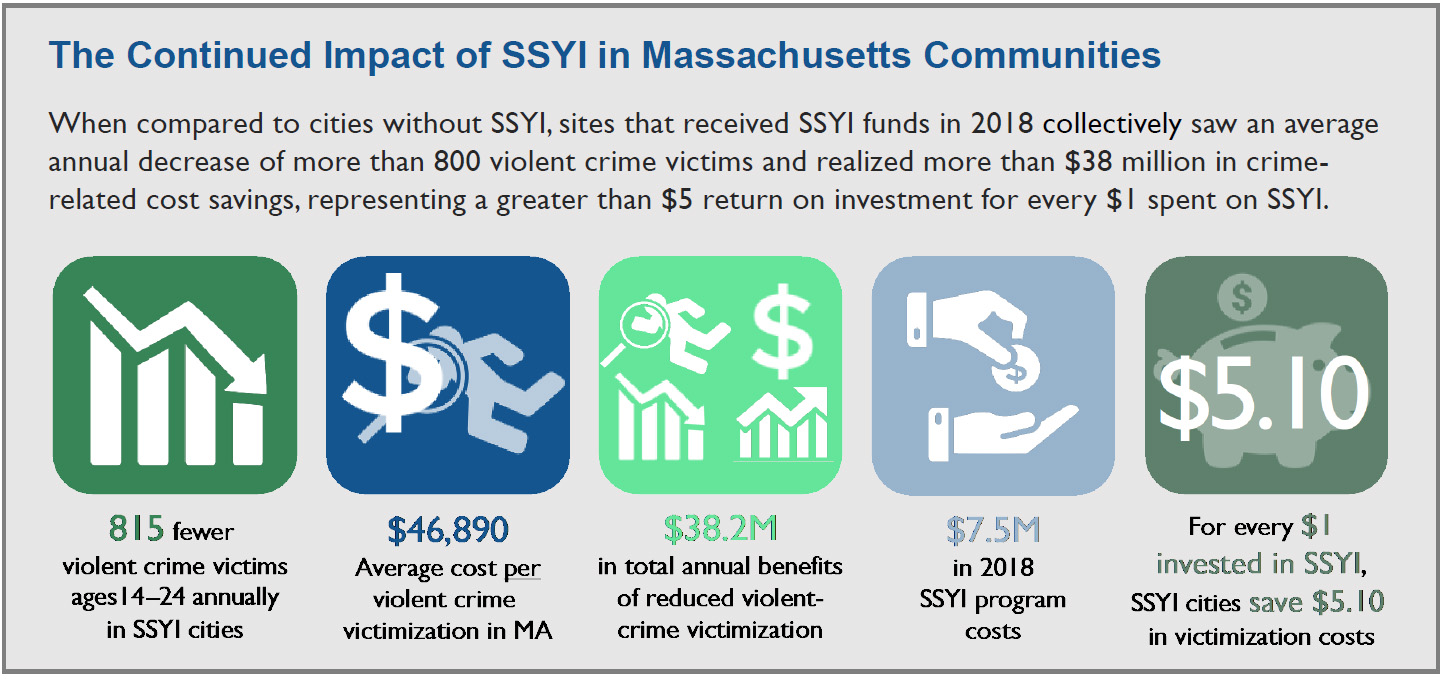Massachusetts’s Safe and Successful Youth Initiative (SSYI) Continues to Reduce Violent Crime and Improve Lives
Read the report's key findings.
Since 2013, AIR, in partnership with WestEd’s Justice & Prevention Research Center, has served as the evaluator for the Massachusetts Safe and Successful Youth Initiative (SSYI). SSYI is a multifaceted, community-based strategy that combines public health and public safety approaches to eliminate serious violence among proven-risk, urban youth ages 17–24. SSYI sites altogether serve nearly 1,900 youth at any given time in Massachusetts communities. In the earliest studies of SSYI, the AIR-WestEd research team found that the intervention was associated with a reduced level of violent crime victimization in SSYI communities, a reduced likelihood of incarceration for SSYI participants, and societal cost savings of as much as $7.35 (in 2013 dollars).
In 2018, AIR-WestEd continued their evaluation of SSYI. The most recent implementation and impact study focused on five core research questions:
- What is the continued and longitudinal impact of SSYI on community-level violent crime and victimization?
- What is the cost-effectiveness of SSYI’s impact on violent crime?
- What are the outcomes and experiences of SSYI clients across cities?
- How is SSYI implemented within each funded city?
- What are the capacities of SSYI-affiliated service providers and in what ways do providers collaborate in each funded city?
The findings from the study illuminate a clear distinction between cities with SSYI relative to similarly violent cities without SSYI. This evaluation was also the first opportunity to deepen the examination of SSYI beyond communities and look at the outcomes and impacts for the individuals targeted by and involved with SSYI. The findings provide a more nuanced understanding of the positive impact of SSYI on these individuals.

Key Findings
- Since SSYI’s inception, rates of violent offenses and victimization in non-SSYI cities saw modest decreases or were relatively stable. Conversely, in cities with SSYI funding, rates have steadily declined since 2012.
- After 2012, clients enrolled in SSYI had 36 percent fewer violent offenses and 20 percent fewer non-violent offenses than did young men identified for the program who never enrolled.
- Cities with SSYI continue to see a positive return on their investment, netting a more than $5.00 societal benefit from reduced victimization costs for each $1.00 invested in SSYI (in 2018 dollars).
- Analysis of self-reported survey data from SSYI clients shows that SSYI provides these young men with resources and supports they value, if not depend on.
- Participation in SSYI facilitates meaningful changes in the lives of participants that decrease their likelihood for future involvement with violence and improve their prospects for future personal, social, economic, and physical wellbeing.


